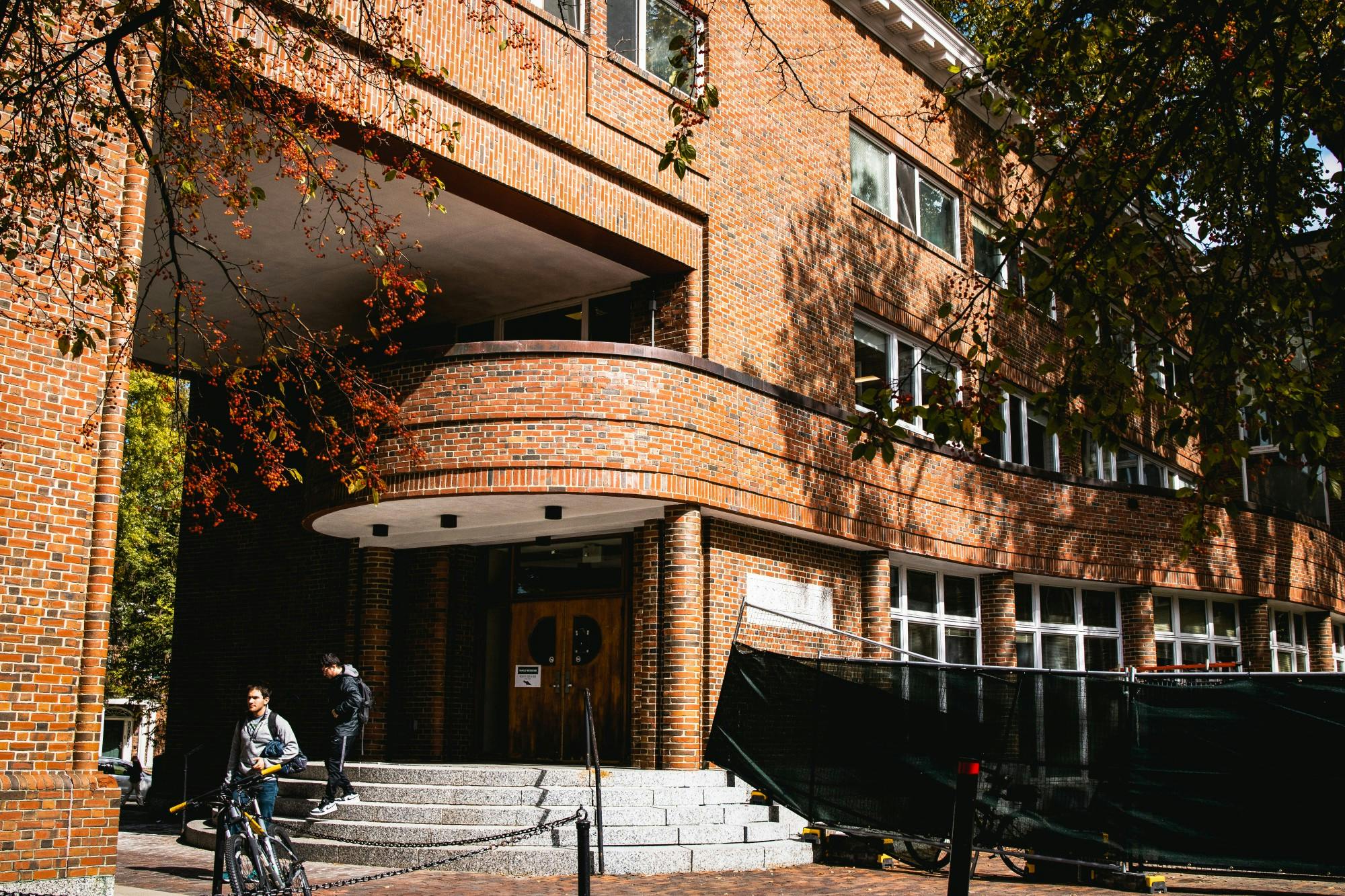On Friday, Sept. 30, the Political Economy Project hosted a talk titled “Why Read Adam Smith Today,” led by Trinity University economics professor Maria Paganelli. Paganelli addressed about 50 students and community members about the importance of reading Adam Smith’s 1776 treatise “The Wealth of Nations.”
In the talk — the first in a series of events hosted by the PEP this fall — Paganelli discussed the historical context of “The Wealth of Nations,” modern ideological opinions on Smith and the “big questions” posed by the work that still remain relevant today. Her prepared presentation was followed by a question and answer session with the audience.
Prior to the talk, professor Henry Clark — who serves as program director of the PEP — said in an interview that he hoped students would engage with the speaker, calling her a “great believer” in the Socratic approach to teaching, which involves teaching through asking questions.
Paganelli opened the talk with reasons why “The Wealth of Nations” is somewhat outdated. Mainly, she noted that Smith’s policy examples focus on a now greatly diminished British Empire, further noting that many of his economic theories have been disproven. She then made a comparison between “The Wealth of Nations” and the Bible, asserting, “you may not agree with all the contents . . . and yet you read because you find something useful, even if some of the ideas are off for today’s standards.”
Despite calling some of its contents outdated, Paganelli argued that readers should turn to “The Wealth of Nations” “because of the questions, not the answers,” which the work poses. According to Paganelli, the original title of the work is actually “An Inquiry into the Nature and Causes of the Wealth of Nations,” with the operating word being “inquiry.” And this core inquiry, Paganelli explained, is how to build an ideal economic system.
“How would a just system which is also promoting the wellbeing of humankind look given the imperfect and non-perfectible nature of humankind?” Paganelli said.
Toward the end of her talk, Paganelli drew attention to the “silent revolution of commerce” — a phenomenon Smith described in which trade and manufacturing leads to order, good government, liberty and security.
A Q&A session followed Paganelli’s talk. In response to a question about the concept of the “silent revolution,” Paganelli responded that commerce peacefully replaced the feudal system and the Church, explaining that no army could have removed either institution without bloodshed.
In response to a student question about the connection between Smith’s writings and modern foreign aid and imperialism in Africa, Paganelli noted that the historical context in which Smith wrote this work was radically different from today’s.
“Foreign aid aptitude was different in this time, because it was not something that was conceivable,” she said. “The closest thing that you can get is ‘how do I relate to other countries that are under my control’... in both situations, [Smith’s] answer would be trade.”
Clark said in an interview that many “converging streams” led to Paganelli’s selection as the first speaker of this academic year. He said that she was initially invited to speak at Dartmouth in April of 2020, but this visit was canceled due to the COVID-19 pandemic. Her talk was rescheduled to this September to serve as a kickoff to the PEP’s year-long schedule of activities revolving around Smith due to his upcoming tercentenary — the 300th anniversary of his birth — in June of 2023.
Arne Grette ’25, a member of the PEP leadership council, said that his class and interest in international trade motivated him to attend Paganelli’s talk. Despite being centuries old, modern international trade theory “still comes down to what Adam Smith was writing back in the 18th century,” Grette said.
In June of 2023, a number of Dartmouth students, faculty and non-Dartmouth faculty will travel to the University of Glasgow for a series of events on Smith’s work, according to Clark. Paganelli, who also serves as current president of the International Adam Smith Society, will be among the non-Dartmouth faculty.
The next PEP talk, a lecture on labor history by Clark titled “Workers as Traders: What Every Student Should Know About Labor History,” will be held on Tuesday, Oct. 4 at 5 p.m. in the Rockefeller Center for Public Policy.
Correction appended (Oct. 6, 9:45 p.m.): A previous version of this article misspelled Paganelli's name. The article has been updated.




